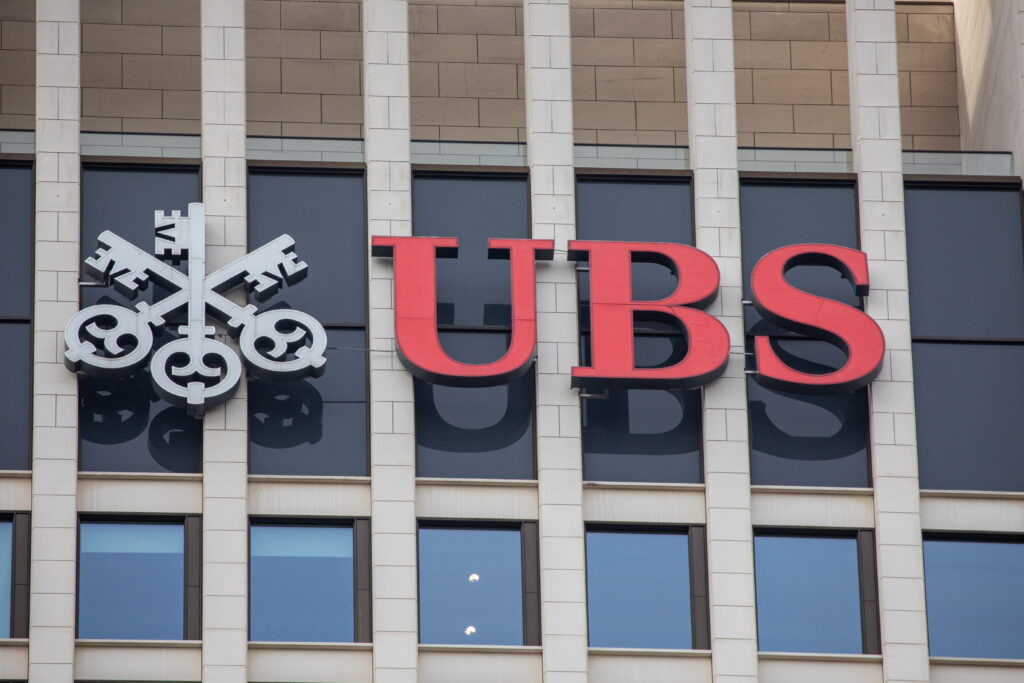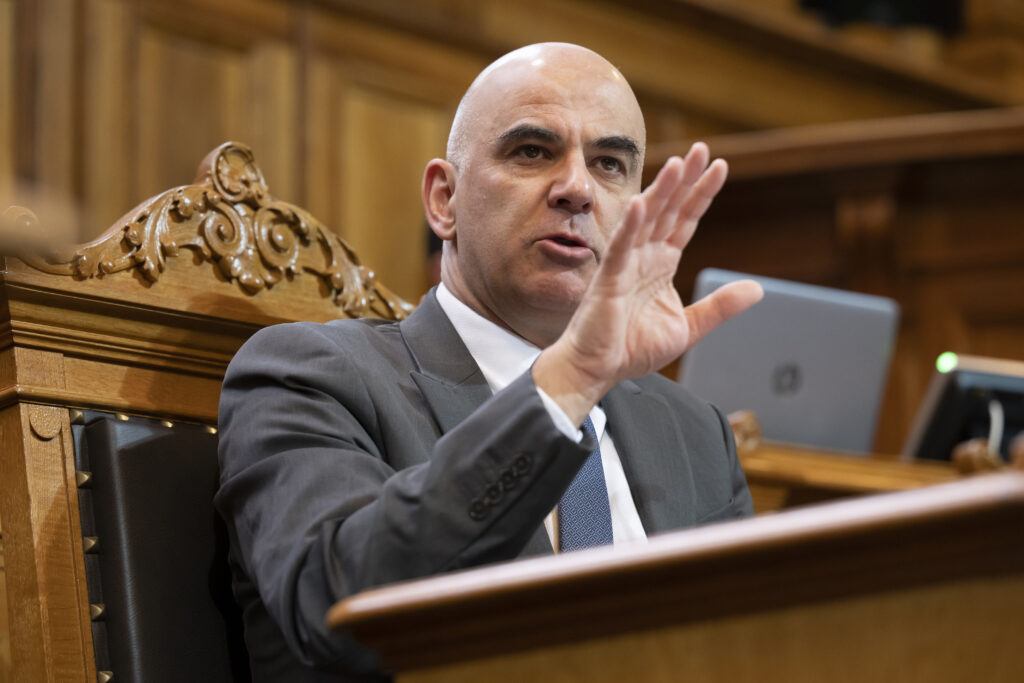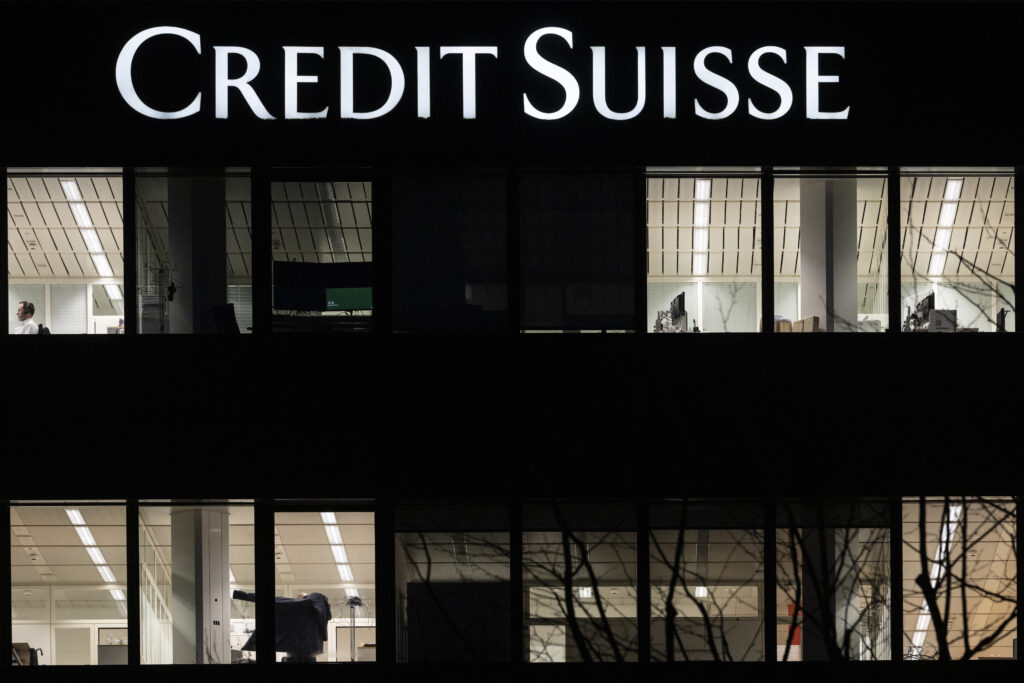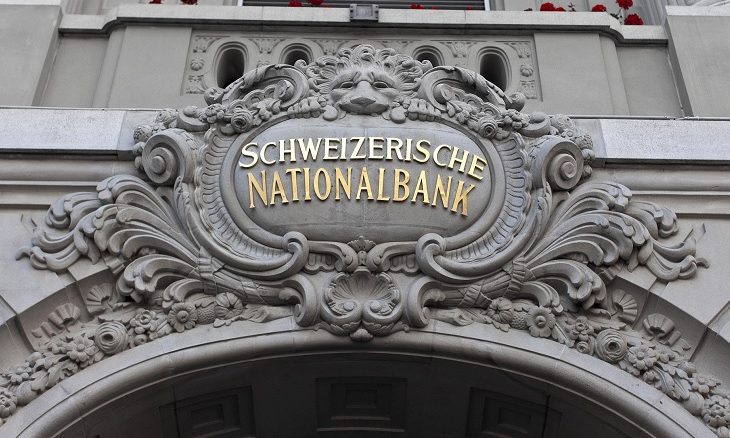Mon, Mar 20th 2023
Amidst the collapse of Credit Suisse, the Swiss government stepped in over the weekend and persuaded UBS to purchase the bank. The fallout remains to be seen.

In a dramatic end to years of Credit Suisse scandals and plunging stocks, the Swiss government announced over the weekend that Switzerland’s second largest bank will be purchased by its largest bank, UBS, for CHF3 billion.
The purchase price values Credit Suisse at about CHF0.75 per share, which is far less than the CHF1.86 share price the bank closed at on Friday evening. Credit Suisse chairman Axel Lehmann said the takeover feels “historic, sad and challenging.”
The Swiss Federal Council, UBS and Credit Suisse negotiated the deal all weekend, with Switzerland’s financial regulator, FINMA, and the Swiss National Bank (SNB) presiding. On Sunday, the group announced that the Swiss National Bank (SNB) will buoy the sale by giving 100 billion Swiss francs to UBS and Credit Suisse. In addition, the Swiss government will take on up to CHF9 billion in possible UBS losses.
“This is a commercial solution, not a bailout,” Swiss Finance Minister Karin Keller-Sutter said, adding that if the government had allowed Credit Suisse to collapse it would have caused “irreparable economic turmoil.”
Switzerland’s “too big to fail” regulations, which were put in place during the 2008 global economic recession, state that during such sales the larger bank must meet certain capital and liquidity requirements.
“There are also regulations for a possible unbundling of the systemically important parts in the event of a crisis,” said FINMA head Marlene Amstad during the announcement. “The only new element here is that these regulations cannot of course apply from tomorrow Monday, but that a transitional phase is necessary.”

The Swiss Federal Council convinced UBS to buy flailing Credit Suisse, according to a financial expert with Prime Partners, François Savary. UBS was not interested in the merger, but the Swiss government persuaded the bank by meeting certain conditions.
“Low price, guarantees, the issue of credit default swaps: UBS wanted to minimize the risk of loss in the transaction,” Savary said, adding that UBS initially offered just CHF1 billion for Credit Suisse. In addition, the Federal Council granted a CHF5 billion guarantee on the investment part of Credit Suisse.
“We don’t give cash. We don’t give any money to Credit Suisse or UBS. Rather, it is a guarantee to the National Bank for liquidity,” Keller-Sutter explained Sunday, adding that the “financial risk is manageable.”
Controversially, the Swiss government did not consult with Credit Suisse shareholders, including Saudi National Bank which purchased about 10% of Credit Suisse shares last fall. The government did consult with other countries’ financial advisors to get their approval, according to SWI Swiss Info. The Swiss government is still awaiting approval from some global regulatory authorities, according to chairman Kelleher.

The left-wing Social Democratic Party (SP) co-president Céderic Wermuth immediately tweeted his frustration over the news, saying that “nothing at all” has changed since 2008 and his party would “hold those responsible.”
Members of the right-wing Swiss People’s Party (SVP) also made their dissatisfaction known by releasing a statement that the crisis was a result of “mismanagement and FDP-feelings” – rather, liberal sentiments. The SVP believes that the Swiss people will have to “answer for these mistakes with billions of national assets.”
Moreover, Credit Suisse should have focused more on national business instead of pursuing an “aggressive” foreign strategy, SVP says.
The Green party president, Balthasar Glättli, says Swiss Parliament has created a “monster bank.” The party on Monday launched a petition demanding that the SNB provide full transparency on the “rescue,” as well as new regulations on the private banking sector.
Jürg Grossen, president of the Green Liberals, said in a statement that the “too big to fail” legislation is obviously inadequate and the merger of two colossal banks presents new challenges in terms of “open and fair” competition.
“What I want to know is how much this is going to cost me as a Swiss taxpayer next year,” said Bertrand Morel, a chef in Geneva. “I did not agree to this, but I know I will have to pay for it some way.”
“Will there be inflation?” asks Marie Thonez, a Lausanne native. “We are already struggling to buy our bread. And now, the government is giving billions of francs to these large banks – it does not make sense.”

UBS CEO Ralph Hamers and chairman Kelleher will head up the newly merged banks.
“We expect that we will have completed the merger within weeks or at the latest within a short period of a month,” Kelleher told local newspaper Tages-Anzeiger, adding that everything should be concluded by the end of 2023.
Hamers sent a memo to about 74,000 UBS employees to “please remember that until this transaction is completed, Credit Suisse is still our competitor and we cannot discuss business matters with their employees or take any action that may affect them,” according to the Financial Times.
This article may be freely shared and re-printed, provided that it prominently links back to the original article.
